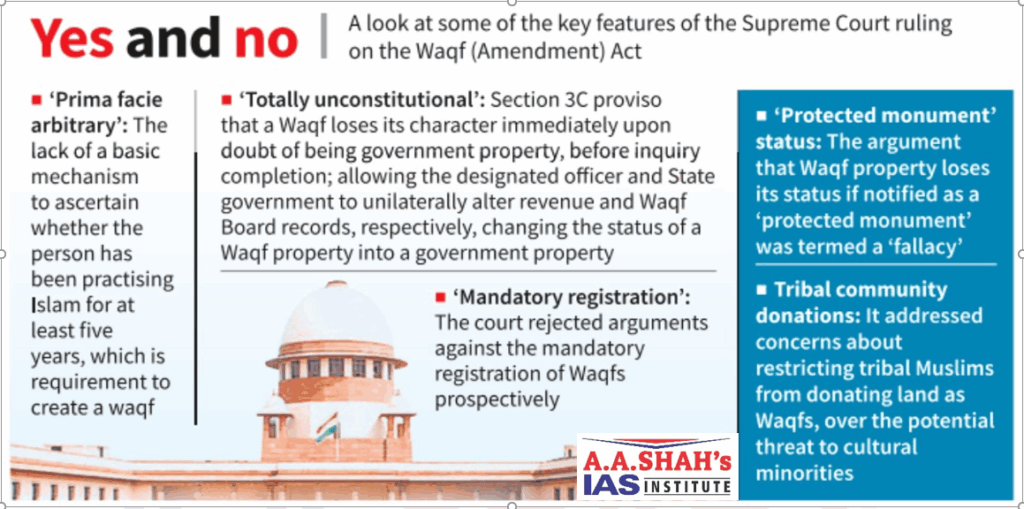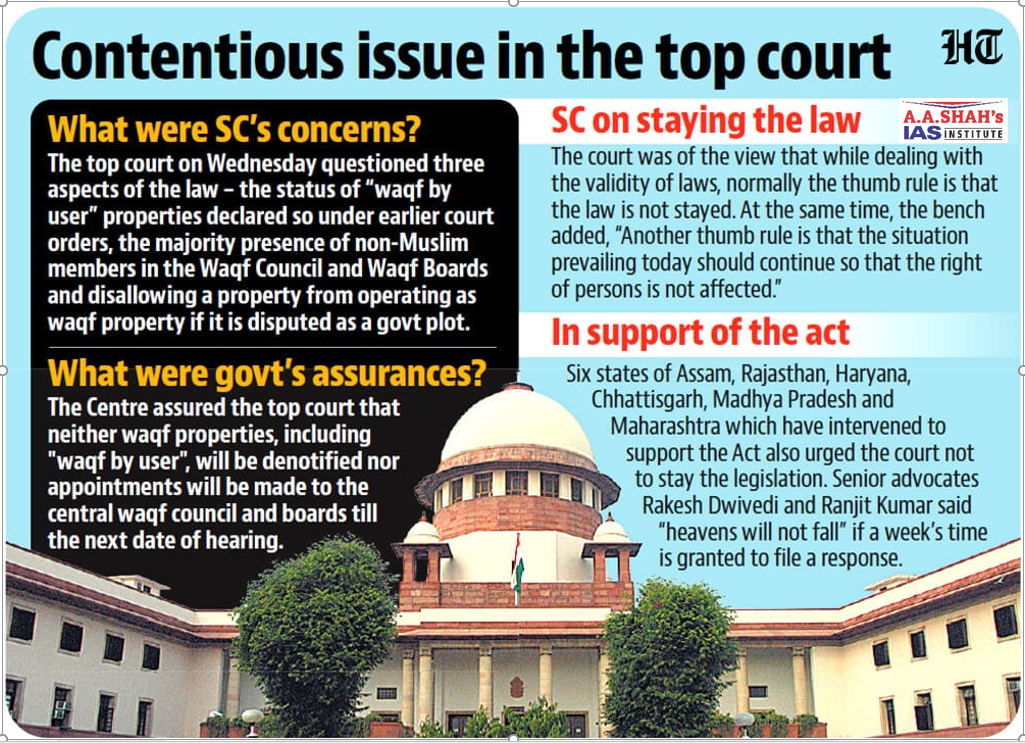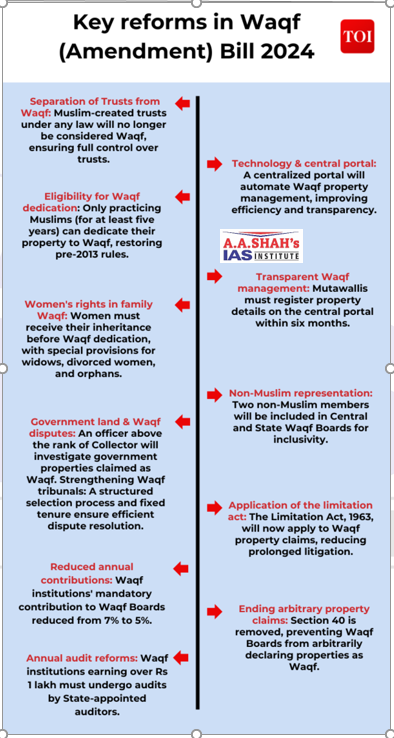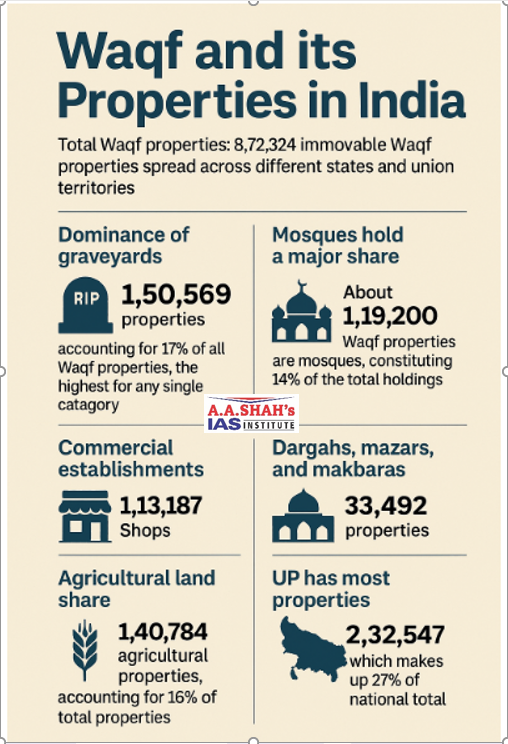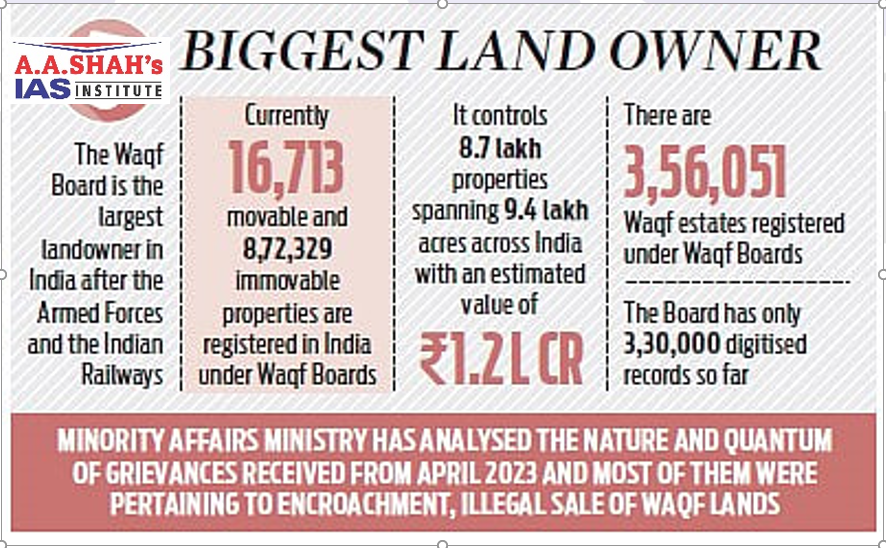SC’s interim ruling on Waqf (Amendment) Act, 2025
POLITY – JUDICIARY
18 SEPTEMBER 2025
- The Supreme Court of India walked a tightrope in its judgment delivered on September 15, on the Waqf (Amendment) Act, 2025, which amended the 1995 Waqf Act to regulate Muslim religious endowments, including vast land holdings across India.
- These are only interim directions pending final adjudication of the constitutional challenge.
- Multiple petitioners moved the Supreme Court challenging the law on the ground that it infringed upon the Muslim community’s fundamental right to manage its own religious affairs under Article 26 of the Constitution.
- Waqf, under Islamic law, denotes a charitable endowment through which property is dedicated for religious or philanthropic purposes.
- The Court put several controversial provisions on hold but refused to freeze the entire Act on grounds of constitutionality and other concerns.
- This turned out to be a rare instance where supporters and critics of the Act claimed vindication for their respective positions in the Court’s order.
- The government views the amendments as necessary to curb the alleged misuse and corruption under the earlier Waqf Act, while critics, including the Congress, see it as arbitrary interference in the affairs of the Muslim community.
Supreme Court’s interim ruling:
- The Court has stayed the requirement that only Muslims practising for five years can create waqf.
- The Court has stayed the power vested in District Collectors to adjudicate waqf property disputes, as such questions fall within the exclusive domain of civil courts and tribunals.
- It also struck down the clause that automatically divested property of its waqf status once an inquiry commenced, calling it “prima facie arbitrary” and holding that questions of title must be decided by judicial or quasi-judicial bodies.
- It also capped non-Muslim members to four in the Central Waqf Council and three in State Boards, down from potentially 12 and seven, respectively, as it contravened the minority community’s right under Article 30 to manage its own institutions.
- The Court also directed that CEOs of Waqf Boards should preferably be Muslims.
- The removal of the provision for waqf-by-user recognition in the amended law has been upheld as valid by the Court, with the caveat that waqf properties registered as on April 8, 2025, under such a claim remain protected. Under “waqf by user,” land employed for Muslim religious or charitable purposes over a sustained period could be deemed waqf even without formal registration.
- The court refused to stay the application of the Limitation Act, 1963, to waqf properties, noting that the statute applies uniformly to all properties. Under the 1995 Act, waqf land had been exempt, allowing Waqf boards to reclaim encroached property without being bound by the Act’s 12-year limitation period.
- Restrictions on waqf status for protected monuments and tribal lands were deemed constitutionally valid.
